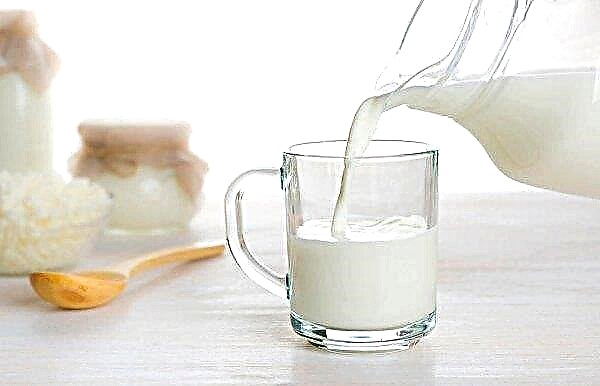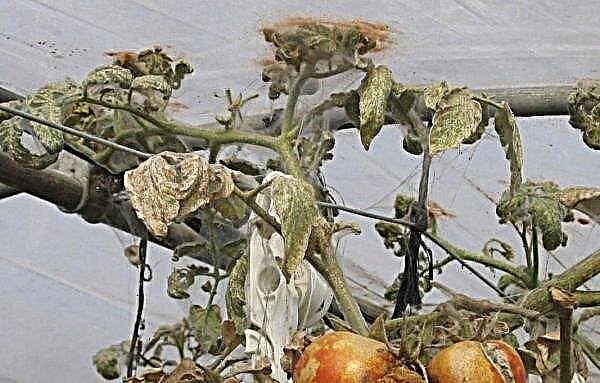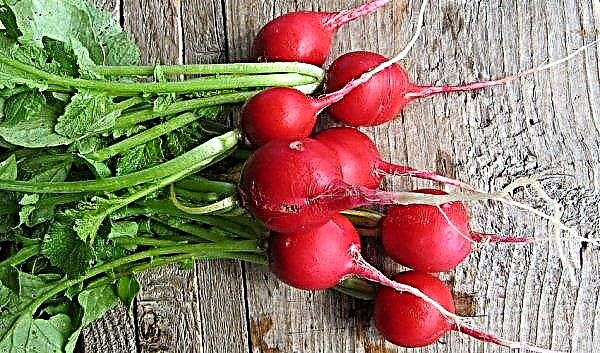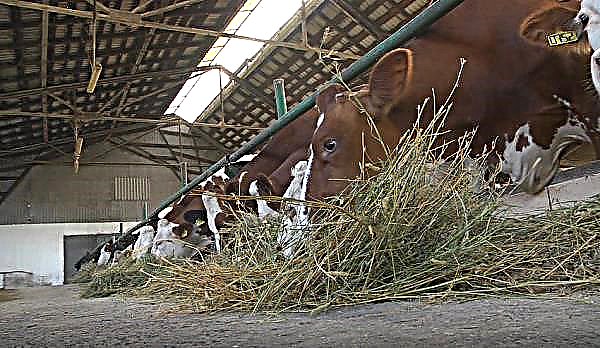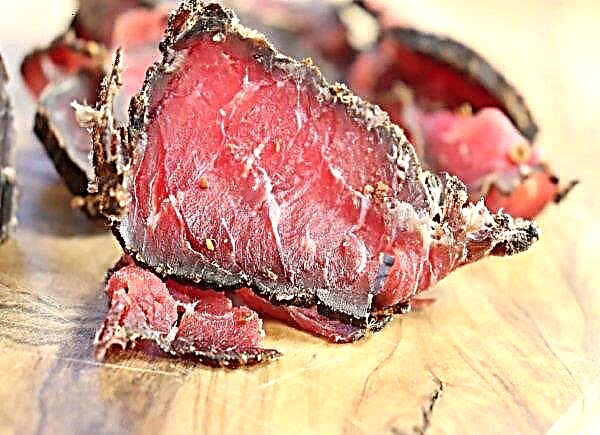Freezing raspberries is the best way to store it, which is important for creating a vitamin reserve for the winter. Find out how to save all the beneficial properties of the product in order to continue to use it without harm to health.
Calorie content and vitamin composition
The ratio of KBJU per 100 grams is:
- calories: 64 kcal;
- proteins: 1.5 g;
- fats: 0.3-0.8 g;
- carbohydrates: 6-15 g.
The total calorie content of frozen berries is about 1.5 times lower than that of fresh raspberries. As for the loss of vitamins, the composition of vitamin B1 is reduced by 25%, and B2 - by 4-18%. With proper handling, you can save 95% vitamin C.

Vitamins A and E are stored in full. 100 g of correctly frozen fruits contain 4-6.5 g of fiber, 130 mg of potassium, 1 mg of sodium.
Did you know? Since the raspberry flower is turned down, when collecting nectar, the bee is under natural protection and can work successfully even during light rain.
Due to the minimal number of calories and rich nutritional value, frozen raspberries are often used in dietary nutrition.
Can I use frozen raspberries
The answer is undoubtedly positive. The product can and should be added to the diet in any form. Despite minor losses during freezing, it is able to raise immunity, help with colds, stabilize metabolism and calm the nervous system.
But it is worth remembering that the berry from shops and supermarkets that are frozen in an industrial way is mainly imported or greenhouse. The useful composition in it is minimal, unlike dyes and various chemical additives.

The same applies to imported products: the crop is often harvested not ripened, and it ripens right on the shelves of the supermarket. Such a product also undergoes harmful processing, which nullifies the beneficial effect on the body.
It is healthier and safer to freeze a natural medicine at home. The main thing is to watch for the observance of the correct freezing technique.
Benefits and harm to the body
The properties of processed fruits can be equated to fresh, given the almost unchanged composition of nutrients. But how much benefit and harm this raspberry can do is best studied before taking it.
- Product Use:
- Frozen raspberries are used to prevent sclerosis.
- It has a positive effect on the cardiovascular system.
- It is recommended for atherosclerosis and hypertension.
- Serve as a herbal antibiotic.
- Removes toxins and cholesterol from the body.
- Used for arthritis and arthrosis.
- Increases immunity.
- Strengthens the human nervous system.
- It has an antipyretic effect and is used in the form of tinctures for colds.
Important! After taking decoctions and tinctures based on raspberries, you should definitely go to bed and take refuge. This will help the body fight the disease better.
- Possible harm:
- Berries should not be consumed with symptoms of gout. Due to the presence of purine in the product, abuse of the product may cause a malfunction in purine metabolism.
- If a person is prone to allergies, a red dessert can cause unwanted reactions (rash, redness, dizziness).
- Raspberry causes contraction of the uterus, so for pregnant women in the last stages it is better to refrain from using it.
How to choose and freeze
Berries are important to choose intact and healthy (you can slightly not ripened). It is necessary to clean them from pieces of leaves, stalks, thoroughly wash and dry.
For freezing, you can choose plastic containers or plastic bags. Depending on the methods of use, the product can be frozen whole, mashed or added sugar and cook jam.
 The optimum storage temperature in the freezer is -18 ... -24 ° C. This temperature regime will allow you to store the crop for up to 1 year.
The optimum storage temperature in the freezer is -18 ... -24 ° C. This temperature regime will allow you to store the crop for up to 1 year.
To prevent fruits from sticking together, it is recommended to pre-freeze (30–35 min.) On plastic pallets. Then they can be transferred to the tank and sent for long-term storage.
Important! With long periods of storage, raspberries lose more vitamins. It is better to store the product for 3-4 months, with a temperature of -8 ... -10°WITH.
It is more useful to freeze raspberries grown on your own site or bought from friends - in this case, the probability is that the berry was not subjected to chemical processing. This will help to ensure the correct freezing process and the availability of healthy qualities.
Contraindications
Despite the high usefulness of raspberries, it is far from always permissible to use it.
- It is worth saying a few words about a possible negative effect on the body:
- during an exacerbation of gastrointestinal diseases, consumption can cause complications;
- the fruits have a diuretic effect, which can cause complications with kidney dysfunction;
- contraindicated in nephritis, polyarthritis, osteochondrosis, oxaluria and exacerbations of urolithiasis;
- abuse can cause headaches;
- contraindicated for diabetics due to high sugar content;
- not recommended for poor blood coagulation, because the berry has the opposite effect;
- reception with bronchial asthma and the presence of polyps in the nose is prohibited.
Did you know? Raspberries are not all equally healthy. So, red raspberries bring more benefits to the body than yellow. And the most useful is black berry, it was bred and grown in the United States.
Thus, raspberries in frozen form have properties that are most similar to fresh. It is suitable for the preparation of medicinal teas, smoothies, compotes and pastries, effective in acute respiratory infections, stress and other diseases.

Such a product will help increase immunity in the winter and please with a delicious dessert. The main thing is to defrost it in a natural way.


